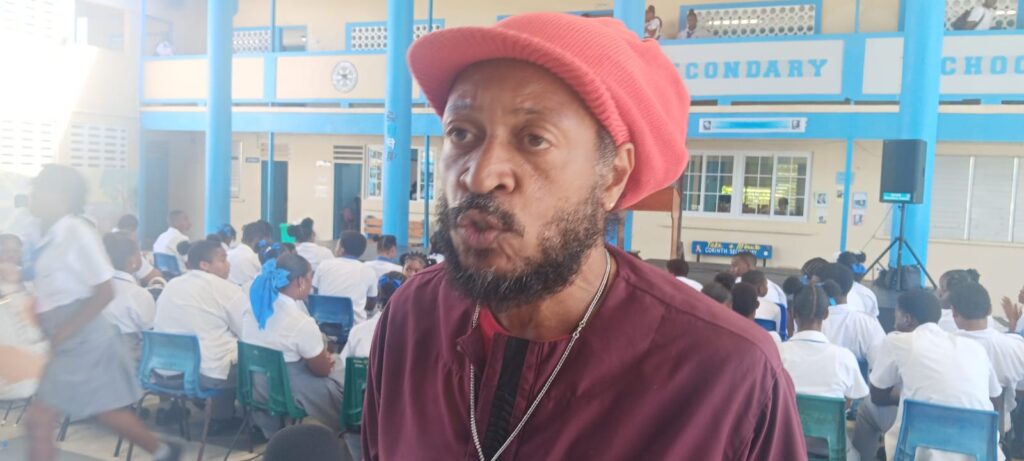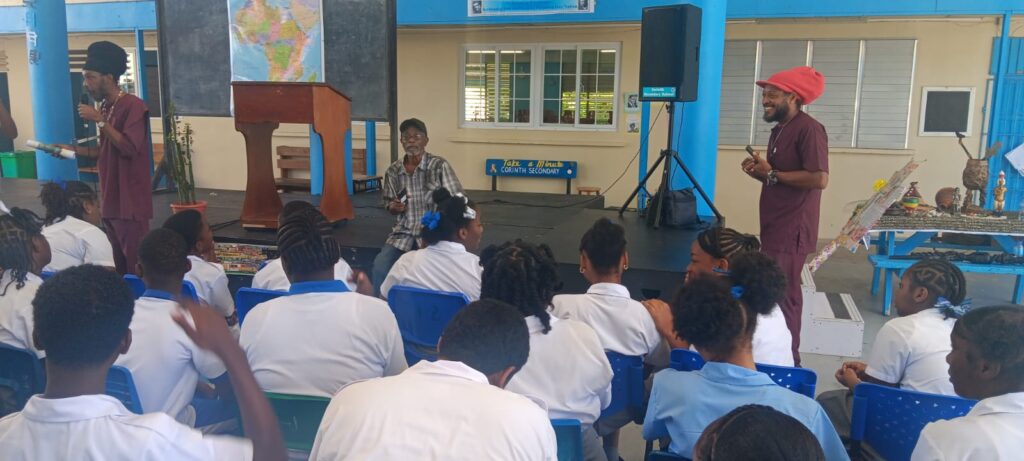The Iyanola Council for the Advancement of Rastafari (ICAR) and Pan-African People, led by President Aaron Alexander, is on a mission to promote African history in schools across Saint Lucia.
The council, a key advocate for education, is responding to Prime Minister Philip J. Pierre’s call to incorporate more African and Black history into the school curriculum.
The Ministry of Education supports the initiative and has endorsed the council’s efforts with a letter of support. The United Nations has also declared 2025 to 2034 the Second Decade for People of African Descent, further highlighting the importance of this educational initiative.
Alexander noted that in the prime minister’s first Emancipation address in 2021, he stressed the importance of teaching African history in schools, and he was therefore “answering that call”.

ICAR has been conducting presentations at various secondary schools throughout February, coinciding with Black History Month and Reggae Month. On a recent visit to Clendon Mason Memorial Secondary School, members of the council shared knowledge about the rich history of Africa, the impact of slavery, and issues impacting the Black community.
“The presentations are divided into three parts: African ancient civilisations and kingdoms, the modern history of the slave trade and colonialism, and contemporary issues like Black-on-Black violence and public health concerns such as chronic obstructive pulmonary disease (COPD),” Alexander told St Lucia Times.
The interactive sessions have sparked meaningful conversations, as students asked many questions about African history. According to Alexander, many students have little knowledge of the continent’s rich pre-slavery civilisations.
“Most of them only know about the slave trade when it comes to Africa, but they don’t know about Africa [before] the slave trade. We like to look at slavery as an interruption in African history. But how did we live as a people prior to the slave trade?” he asked.
 The presentations also included displays of African artefacts and history books, providing students with tangible insights into their heritage.
The presentations also included displays of African artefacts and history books, providing students with tangible insights into their heritage.
“We want to ensure that we continue in that vein to educate our children, even long past Black History Month,” he stated.
Alexander hopes the government will recognise the need for continued support, possibly through a subvention to the council to sustain its efforts.





It is absolutely essential to educate people about their history. It is also essential not to idealize the past. War and violence (and even slavery to a lesser extent) existed prior to the heinous Transatlantic Slave Trade inflicted on Africa by Arab Traders and Europeans. Not to equate the two of course, but to keep any history in context and balanced. That is what history is! I applaud all those calling for a balanced education including Kweyol as a subject, because it is about us as people of the African Diaspora, and how we arrived at where we are today…